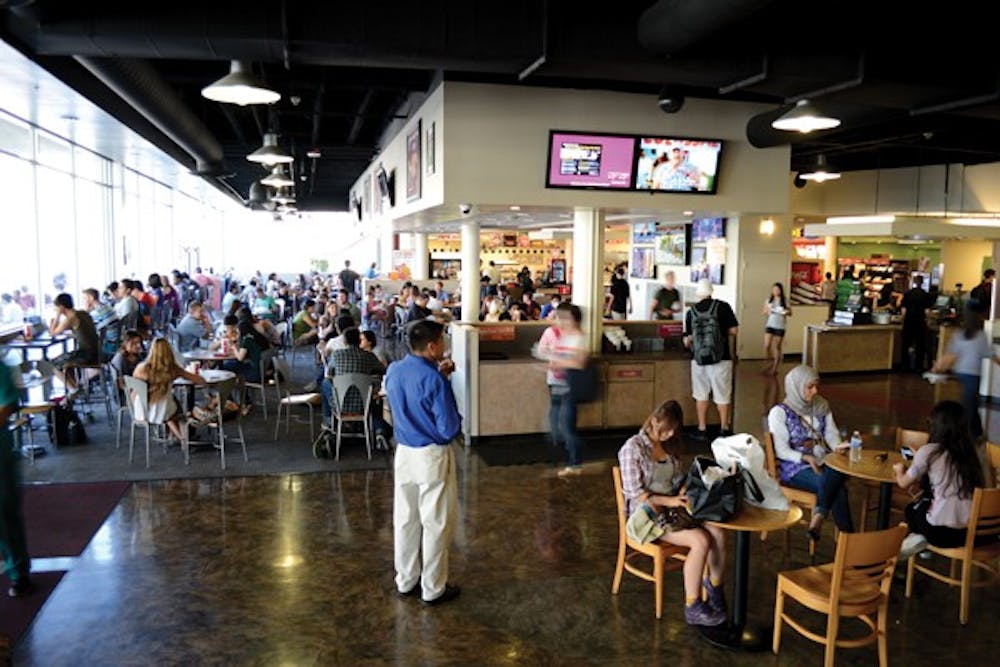 As enrollment numbers at ASU increases, so does diversity among students and talk of expanded campus transportation. (Photo by Kurtis Semph)
As enrollment numbers at ASU increases, so does diversity among students and talk of expanded campus transportation. (Photo by Kurtis Semph)ASU’s enrollment reached a new record this fall, further reflecting the University’s motto of acting as an “inclusive” campus.
The total enrollment for undergraduates and graduates this semester is 73,373, an increase of more than 1,100 students from fall 2011.
The introduction of ASU Colleges at Lake Havasu City has brought 70 students to the newest campus with plans of continued expansion and renovations.
Enrollment Management Vice Provost Kent Hopkins said the faculty at the Lake Havasu campus would look at students’ demand and progress year by year to decide how many students will fit in with the campus’s programs.
ASU Colleges at Lake Havasu City was established on a former northern Arizona middle school to provide a lower-cost college on a smaller campus, Hopkins said.
David Young, director of programs at ASU Colleges at Lake Havasu City, said the plan is to continually add students with the expectation of enrolling 800 to 1,000 students in the next five years.
Enrollment at ASU is also developing geographically as 37 percent of incoming freshman are non-residents and international enrollment has increased by 34 percent.
“Students enrich their educational experiences because of this diverse gathering,” Hopkins said. “It is a snapshot of our contemporary world.”
Hopkins said tuition costs and state funding are the prevalent obstacles when dealing with a large university.
Parity subsidies approved by Gov. Jan Brewer and the Arizona Board of Regents in May are the greatest contributors to education funding. Private donors also make up a part of the funding.
Specific programs that have a significant rise in enrollment include the Ira A. Fulton Schools of Engineering, the Walter Cronkite School of Journalism and Mass Communication and the College of Nursing and Health Innovation.
The New College of Interdisciplinary Arts and Sciences, which opened this fall, is also expected to see student body growth.
The rise in enrollment will coincide with building and transportation expansion.
A student recreation center conjoining with the Lincoln Family Downtown YMCA is currently under construction. The facility, which is expected to finish next year, will accommodate students on the Downtown campus.
The recreation center at the West campus is expected to be open for use by January 2013 despite a delay in construction.
Construction is also underway for McCord Hall, another academic building for the W. P. Carey School of Business.
Biochemistry sophomore Willisha Tucker said at first she opposed a large university because it was hard to adjust to the overwhelming number of students.
“It seems as if ASU was just trying to fill up the school with as many students as they can,” Tucker said.
Despite struggling with funding and helping students adapt to an uncommonly large school, ASU will continue to grow.
“It’s all about finding your niche, then finding others with the same niche,” Tucker said. “A university with lots of students like ASU makes that journey possible.”
Reach the reporter at mkthomp5@asu.edu




